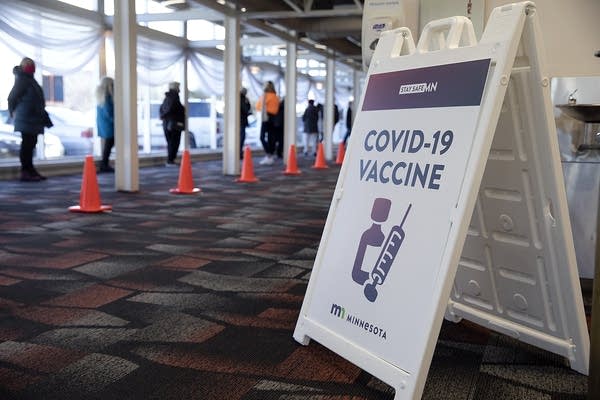4 questions to help sort through the ethics of getting a COVID vaccine before you’re eligible

People stand in line to receive COVID-19 vaccinations in January at the Earle Brown Heritage Center in Brooklyn Center, Minn.
Christine T. Nguyen | MPR News file
Go Deeper.
Create an account or log in to save stories.
Like this?
Thanks for liking this story! We have added it to a list of your favorite stories.


